Hezbollah Drone Attack Signals Escalation With Israel
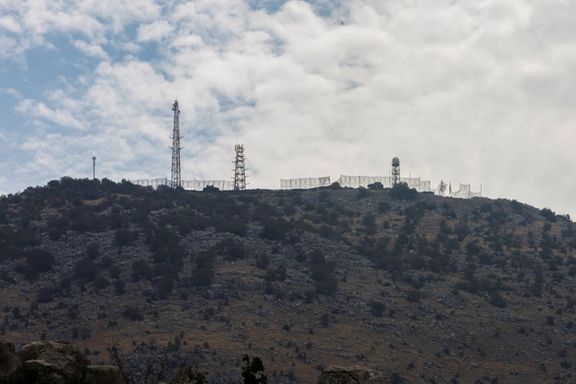
Lebanon's Hezbollah said it had attacked Israeli an army position using explosive drones for the first time, prompting heavy Israeli shelling, escalating clashes at the frontier.

Lebanon's Hezbollah said it had attacked Israeli an army position using explosive drones for the first time, prompting heavy Israeli shelling, escalating clashes at the frontier.
The Israeli army said it was striking a series of Hezbollah targets in Lebanon following several launches towards Israel, in a post on social media platform X.
Lebanon's National News Agency reported Israeli shells hitting various areas of the south along the border.
In a statement, Iran-backed Hezbollah said it had used two drones packed with explosives to attack an Israeli army command position in the disputed Shebaa Farms area at the Lebanese-Israeli border.
Meanwhile, an Israeli army spokesman said that the Iman Hussein Brigade, an Iranian-sponsored militia from Syria, has been transferred to south Lebanon to support Hezbollah.
The attack comes a few days after Hezbollah said for the first time it had used a surface-to-air missile against an Israeli drone.
Hezbollah said the drones filled with "a large quantity of explosives" had attacked the headquarters of the Israeli battalion in the Shebaa Farms area, and they had hit their targets.
Israel has held the Shebaa Farms, a 15-square-mile (39-square-km) area of land, since the 1967 Middle East war. Both Syria and Lebanon claim the Shebaa Farms are Lebanese.
Hezbollah fighters have been exchanging fire with Israeli forces across the Israeli-Lebanese border since the Palestinian militant group Hamas and Israel went to war on Oct. 7, in the deadliest escalation at the frontier since a 2006 war.
Hezbollah leader Sayyed Hassan Nasrallah is due on Friday to deliver his first speech since the onset of the violence.
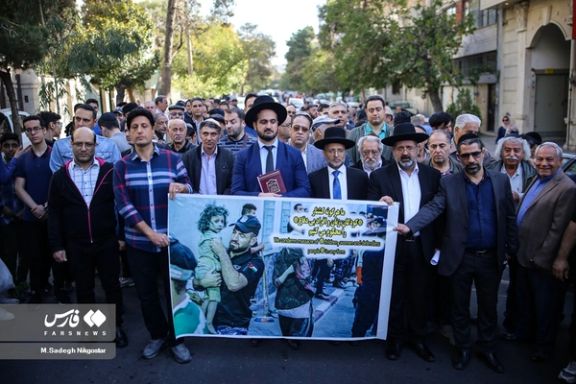
Amid Iran’s unequivocal support for its proxy Hamas, the regime has pushed Iranian Jews to cut ties with Israel-based friends and relatives.
Sources told Iran International Wednesday that an unknown number of members of the community were forced to block their relatives' phone numbers in Israel and some have left family and group chats on messaging apps, including WhatsApp. The sources did not specify how the authorities pressure them but there are other reports about unknown people – presumably intelligence or Revolutionary Guard agents -- calling the Jewish people in Shiraz and pushing them into cutting relations with their Israeli relatives.
Clearly organized by the regime, Iranian Jews have held ceremonies in synagogues across various cities over the past few days to express support for Hamas, which killed 1,400 mostly civilians on October 7 and took over 230 hostages to Gaza.
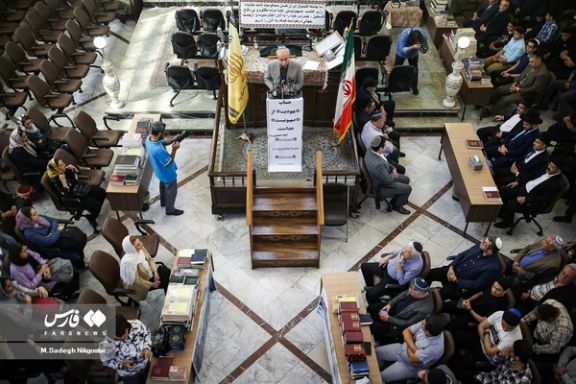
In April, the regime pressured the Jewish community to participate in Quds Day, which coincided with the Jewish holiday of Passover. The one-year anniversary of Mahsa Amini’s murder, which sparked months of anti regime protests in 2022, coincided with the Jewish New Year on September 16, prompting community leaders to warn Jews to stay off the streets.
In a Telegram posting from Iran’s roughly 9,000 strong Jewish community, the leadership wrote “All worshipers are strongly requested to refrain from stopping and gathering in the streets for any reason during Rosh Hashanah and after performing religious duties in synagogues.”
Although Iran has voted several times on pro-Palestinian UN resolutions that called for a two-state solution for the conflict, Tehran’s official ultimate goal is the destruction of the Jewish state, as prophesied by the octogenarian despot.
The pressure on the Jewish community comes on the backdrop of Iran extending its criteria to criminalize support for Israel. This week, a body tasked with determining instances of criminal content, under the judiciary, updated its articles to include any activity in support of Israel in cybersphere.
Since Hamas declared war with the operation it codenamed al-Aqsa Flood (Storm in Persian), Iranians have become even more vocal about their distance from the Islamic Republic’s narrative of the conflict, making trendy hashtags like IranStandsWithIsrael or chanting creative slogans about where the regime should put the Palestinian flag.
An emotional funeral for a young Israeli soldier of Iranian origin killed in the Hamas attack earlier this week went viral, jogging Iranians’ memory of deep common roots with the Jewish community. Shirel Haeimpour’s grandfather sang a traditional Jewish love song and a wedding song with his Esfahani Persian accent for the young woman.
In October, the Islamic Republic revealed again that it exerts considerable pressure on the country’s tiny Jewish community to denigrate Israel. The Tehran-born Beni Sabti, an expert on Iran from the Israeli National Security and Strategy Institute, told Iran International that the Islamic Republic strong-armed the Tehran Jewish community into condemning Israel on its Telegram channel for its efforts to defeat Iran’s ally, Hamas.
Iranian authorities have recently nudged down their saber-rattling against Israel and claim Tehran does not have any proxy militia under its command. Iran’s ruler Ali Khamenei attempted to counter international reports suggesting Iran's role in organizing pro-Hamas rallies in major European and US cities during a speech on Wednesday. He dismissed the claims, saying it's as if the Basij militia of the Revolutionary Guard had branches in London and Paris. In fact, the UK now claims Iran is one of the country's number one threats, having attempted multiple attacks on UK soil in the last year. Khamenei also called on Muslim states to cease oil, food and goods exports to Israel.
US and European officials are concerned that actions by the Iranian government could escalate the conflict to other fronts with Iranian proxy forces' potential involvement. Since the war broke out, multiple attacks on US bases in the Middle East have already set tensions to crisis level.
Prior to the war, Israel and Saudi Arabia were edging ever closer to opening diplomatic ties, in the footsteps of other nations such as the United Arab Emirates which was one of several countries party to the US-brokered Abraham Accords of 2020. However, the warming of ties with Israel and Saudi had been a huge point of contention for the regime which repeatedly warned against the normalization.
US President Joe Biden listed the disruption of the normalization of relations between Saudi Arabia and Israel as one of the reasons behind the Hamas attack.
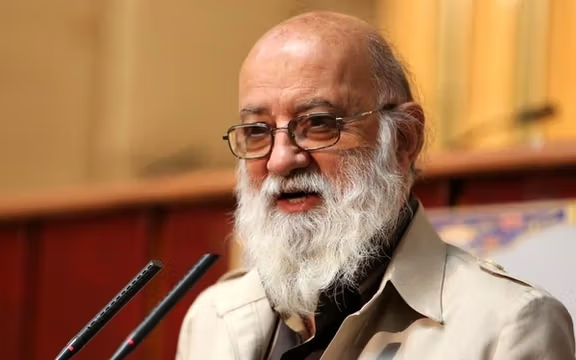
The head of Tehran City Council has announced plans to support the reconstruction of Gaza during an upcoming meeting involving city council leaders.
Coming amid the ongoing war between Israel and Iran-backed Hamas in Gaza, which Israeli prime minister Benjamin Netanyahu has said will be "long and difficult", Mehdi Chamran said that a meeting is scheduled to discuss “strategies to prevent future Israeli bombings.”
His offer of aid to Hamas-run Gaza comes when ordinary Iranians are struggling to survive as the country grapples with one of its most severe economic crises. The national currency is at a historic low, causing unexpected poverty for tens of millions of Iranians.
Questions about taking the domestic budget abroad will likely raise questions among a population grappling for even the basics such as food and fuel.
The Islamic City Council of Tehran oversees the governance of the capital city. It plays a pivotal role in selecting the mayor and managing the budget of the Municipality of Tehran.
Recent developments have shed light on financial irregularities within the Tehran municipality. In May, Tehran City Council revealed nearly $400 million worth of financial discrepancies, highlighting a history of corruption cases in Tehran's municipal administration.
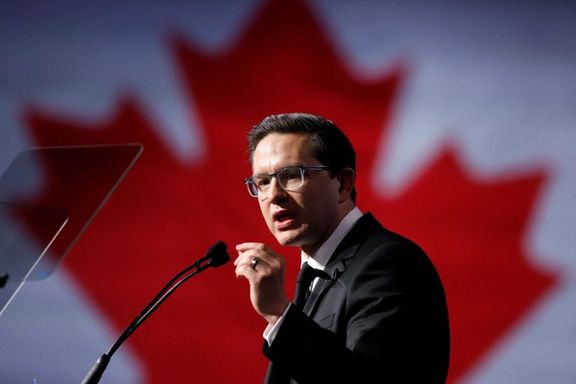
Pierre Poilievre, the leader of Canada’s opposition Conservative Party, blames Iran for Hamas’ massacre of October 7.
Speaking exclusively to Iran International, he said: “I don’t believe that Hamas has the sophistication and coordination to carry out an attack at this scale without major logistical planning and intelligence backing from a government.”
Poilievre called the Iranian regime “the number one state sponsor of terror” and “the most likely culprit” in Hamas’ onslaught on Israel which saw 1,400 mostly civilians murdered and 240 more taken hostage to Gaza.
He also slammed Iran’s Revolutionary Guard (IRGC) for its coordination of Hamas and Hezbollah terror groups, among Iran's network of regional proxies, stressing the need to “criminalize” the IRGC in Canada.
Iranian officials have repeatedly rejected allegations about Tehran’s role in helping Hamas organize its invasion which saw thousands of Hamas fighters invade by air, land and sea in the single most deadly day in Jewish history since the Holocaust.
In an interview with CNN, Iran's Foreign Minister Hossein Amir-Abdollahian claimed that Tehran neither has a proxy group nor runs a proxy war in the region.
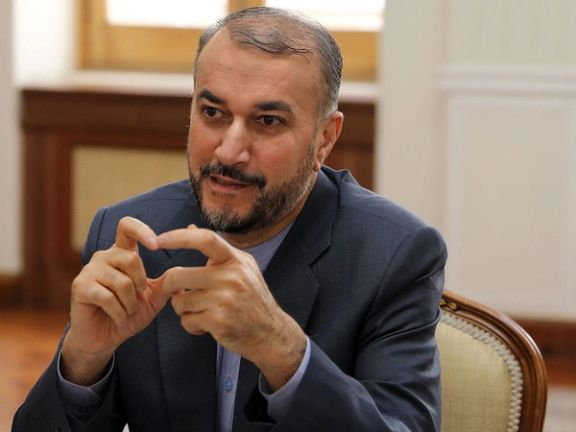
Poilievre took Canadian Prime Minister Justin Trudeau to task for choosing not to list IRGC fully as a terror group and stated that he does not understand the rationale behind the government’s decision. The US designated the IRGC as a whole in 2019 under the Trump administration.
The Conservative party “will not relent until the IRGC is criminalized as a terrorist group in Canada,” Poilievre vowed.
In August, Canada decided to impose sanctions on 170 Iranians and 192 Iranian entities, including IRGC officials.
Then, in November, Prime Minister Justin Trudeau said Canada has designated Iran's IRGC leadership, adding that Canada will “restrict financial transactions with the Islamic Republic of Iran associated with the IRGC and the proxies that support them".
He added: “These actions are some of the strongest measures anywhere against Iran.”
However, Poilievre said that the implementation of these sanctions depends on “how serious the government is.”
It was not the first time the IRGC had been subject to sanctions. In October 2022, in the wake of the Women, Life, Freedom uprising, Canada announced sanctions against IRGC, permanently banning over 10,000 of its officers from entering Canada.
“We will restrict financial transactions with the Islamic Republic of Iran associated with the IRGC and the proxies that support them. These actions are some of the strongest measures anywhere against Iran,” Trudeau said at the time.
However, the opposition leader believes that Trudeau’s government lacks the “law enforcement rigor” to fully implement IRGC sanctions.
Poilievre confirmed the possibility of Tehran’s using Canada as a platform to operate its proxy wars, adding that there are reports about “well-placed regime thugs” in Canada who spend the money that “they stole from the Iranian people.” Western governments including the US and UK are increasingly concerned about regime activity with the UK branding Iran among its top threats and the FBI just revealing that Iran has tried to kill American officials on US soil.
He also called for tightening immigration regulations to ensure that anyone “willingly associated” with the Iranian regime should not be eligible for entry to Canada.
Reiterating his support for the “Woman Life Freedom” movement, he called on Iranians to remain adamant in their pursuit of freedom despite the regime’s mounting crackdown.
“We need a regime change in Tehran. And it will only happen if the people keep fighting. It's a long journey, but don't give up,” he said.
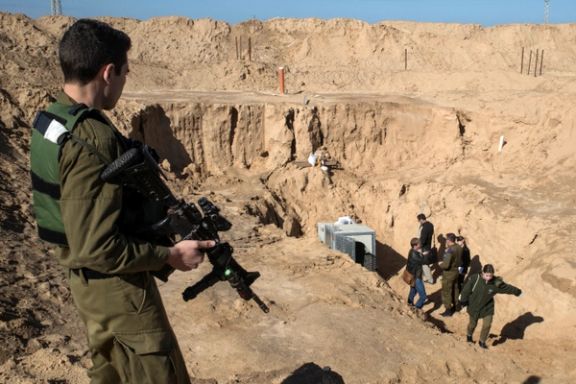
Hamas has built 500 kilometers of tunnels in Gaza, where they have amassed weapons, the commander of IRGC forces in Tehran, Hassan Hassanzadeh has said.
He added that Hamas forces managed to infiltrate up to 40 kilometers into the Israeli territory during their deadly onslaught on October 7, saying it was “a great victory.”
The second victory happened when people in London, Paris and other places held rallies to support the Palestinian cause, the IRGC commander stated.
Recently, the British newspaper The Times reported that Iranian agents are stirring up unrest in the UK through Gaza protests.
There is direct involvement of the Iranian regime through the physical presence of operatives at protests as well as through disinformation campaigns conducted online, the report said.
Hassanzadeh also claimed that Israel’s political and security structures have collapsed following Hamas attack, while the Israeli army is advancing in Gaza.
His remarks came three days after Mohammad Bagheri, the Chief of Staff of Iran's Armed Forces, said that Hamas fighters have constructed over 400 kilometers of tunnels in northern Gaza, describing them as one of the factors that the Islamist militia has survived against Israeli fire.
On October 31, Jam-e Jam daily, close to the Iranian regime, called Hamas tunnels “a labyrinthine puzzle” that cannot be solved by American and Israeli security and military circles.
These tunnels provide Hamas with a great advantage in any ground battle with Israeli forces, added the report.
The clashes between the two sides started when the Hamas terror group launched a surprise attack on Israel on October 7, killing at least 1400 people.
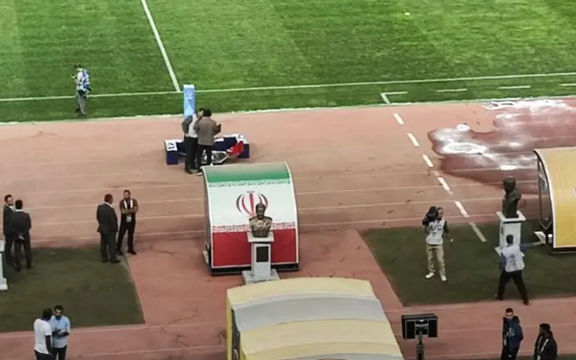
Iran's Sepahan has been penalized with a 3-0 loss as a result of its displaying a bust of IRGC commander Qassem Soleimani for a match against Saudi's Al Ittihad.
The match, which was scheduled to take place last month, took an unexpected turn when the Saudi team abruptly left the field just before kickoff in protest at the display of the former IRGC Quds Force Commander on the sidelines. The team was also fined $200,000 for the incident that left the team shamed on the global stage.
Qassem Soleimani, responsible for Iran's proxy forces in the region, was killed in a US drone strike near Baghdad International Airport in 2020. Then-President Donald Trump claimed that the military commander had been actively planning attacks on American diplomats, service members, and administration officials in the region.
Ali Karimi, a former soccer legend and an outspoken critic of the regime said that even after his death, Soleimani inflicts costs on the Iranian people.
In a further blow to Sepahan, the team was also banned from hosting its next three Asian Champions League matches at home.